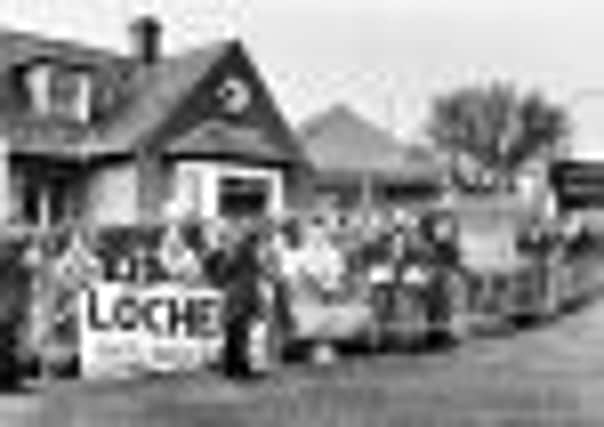Ian Swanson: Should Scotland be thankful for Thatcher?


They remember the bleak prospects faced by youngsters leaving school in the 1980s, the devastation brought to communities by the closure of factories, pits and shipyards, and the poverty associated with unemployment which was up to one-third higher in Scotland than in the UK as a whole.
But even Scots who opposed all her policies do have one reason to be grateful to Margaret Thatcher. Had it not been for her period in power and the unpopularity of her government, there would be no Scottish Parliament.
Advertisement
Hide AdAdvertisement
Hide AdFormer Scottish Secretary Michael Forsyth has said she was firmly opposed to devolution because she feared it would lead to the break-up of Britain. But it was the implementation of her controversial policies in Scotland, despite their repeated rejection at the ballot box here, which ensured that devolution, talked about for decades, finally became a reality.
The “democratic deficit” which put Scots on the receiving end of Thatcherite policies despite voting against the Tories over and over again eventually became just too glaring.
First Minister Alex Salmond says the poll tax made people in Scotland think that a Scottish Parliament “instead of just being a nice idea was something that was absolutely essential to prevent such a policy being imposed from on high again”.
Lady Thatcher is said to have been puzzled why there was “no Tartan Thatcherite Revolution”. She felt Scots ought to have been more enthusiastic about her philosophy and politics, given the values of hard work and thrift she believed were key to the Scottish character and her own.
But at the same time, she seems to have viewed Scotland as hostile territory. Newspaper photographer Ken Lennox, who regularly took pictures of her, has told how she called him “my little socialist photographer”. When he asked her what made her think he was a socialist, she replied: “You’re Scottish, you must be a socialist.”
The Conservatives, unsurprisingly, stayed out of the cross-party Scottish Constitutional Convention which drew up the blueprint for devolution. The party urged a No-No vote in the 1997 referendum on a new parliament with tax-raising powers.
But once the voters had given devolution the thumbs-up, the Tories were as keen as everyone else to get elected to the new parliament. The proportional voting system threw an initial lifeline to the Scottish Tories after their wipeout in the 1997 general election.
Just two years after the humiliation of seeing all their candidates defeated, the Scottish Conservatives emerged from the first devolution elections with 18 list MSPs. The party managed to win some constituency seats in subsequent elections but, far from reviving, its overall share of the vote has continued to fall.
Advertisement
Hide AdAdvertisement
Hide AdNot only did Lady Thatcher unwittingly give us the Scottish Parliament, she also sowed the seeds of ongoing decline for her party.
When other politicians invoke Lady Thatcher and her record as a warning against today’s Tories, commentators sometimes dismiss the attacks as harking back to a forgotten era no longer relevant. It’s true that many of today’s voters were not even born when Lady T left office, but the collective memory about her time in power is still strong, especially in Scotland.
Lady Thatcher brought about a dramatic and lasting change in the political culture of the UK, promoting a “greed is good” philosophy, deregulating the banks, effectively destroying the trade unions and establishing privatisation, public spending cuts and lower income tax as the policies of choice for British governments of whatever colour.
Devolution was no part of her plan – she believed it was a slippery slope to separation – but it happened as a result of her other policies. On her own logic, if next year’s referendum should end in a Yes vote for independence, that too could be seen as part of her legacy.
A S-TORY OF CONSISTENT DECLINE
The decline in Conservative support in Scotland – from its record high of 50.1 per cent in 1955 – was already well under way when Margaret Thatcher became leader.
But it continued apace during her premiership. Although the Tory vote had dipped to a 100-year low of 24.7 per cent in October 1974, just four months before she won the leadership, that was atypical.
When she won power in 1979, 31.4 per cent of Scots voted Conservative, returning 22 MPs; by the next election in 1983, the party’s share of the vote had fallen to 28.4 per cent, electing 21 MPs; and in the 1987 election, her last as leader, the Tories’ vote in Scotland was down to just 24 per cent and only ten MPs were elected.
The dramatic decline in Scotland occurred while Tory support in the UK as a whole remained steady – 43.8 per cent at the 1979 election and 42.2 per cent in 1987.
At the last general election in 2010, just 16.7 per cent of Scots voted Tory and there is one Scottish Conservative MP.